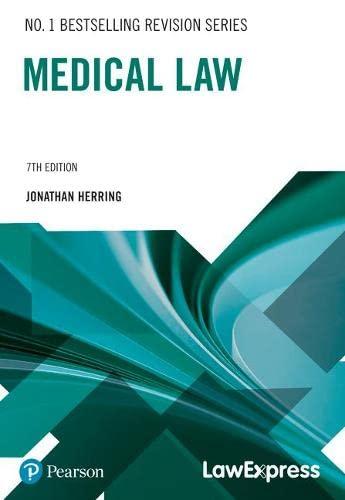Question
Cases to review: Penfolds Wines v Elliott (1946) 74 CLR 204 ('Penfolds Wines') and Flack v Chairperson, National Crime Authority (1997) 80 FCR 137 ('Flack')
Cases to review: Penfolds Wines v Elliott (1946) 74 CLR 204 ('Penfolds Wines') and Flack v Chairperson, National Crime Authority (1997) 80 FCR 137 ('Flack')
1. Succinctly describe the issue before the Court in Penfolds Wines.
2. On what basis did the plaintiff in this proceeding claim relief?
3. What remedy was the Appellant seeking? 4. What is the difference between 'trespass' and 'conversion' according to their Honours?
5. Did their Honours consider that the Respondent had committed trespass?
6. Did their Honours consider that the Respondent had committed conversion?
7. Why did Dixon J conclude as he did in relation to the issue of conversion?
8. How did Latham CJ's reasoning differ (if at all) to that of Dixon J?
9. Succinctly describe the issue before the Court in Flack and Who did Hill J find for in Flack, and on what basis?
10. Hill J referred to Penfolds Wines in his judgment. What principle was applied relying on Penfolds Wines in the judgment in Flack and how was it relevant to the outcome of that case?
Step by Step Solution
There are 3 Steps involved in it
Step: 1

Get Instant Access to Expert-Tailored Solutions
See step-by-step solutions with expert insights and AI powered tools for academic success
Step: 2

Step: 3

Ace Your Homework with AI
Get the answers you need in no time with our AI-driven, step-by-step assistance
Get Started


